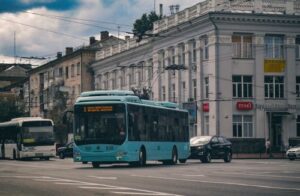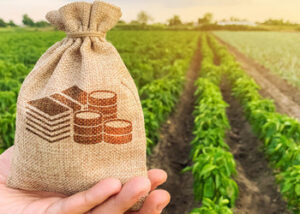
France will provide Ukraine with at least EUR60 million by the end of this year, according to Pierre Elbrun, the French President’s Special Envoy for Ukraine’s Relief and Recovery.
“As winter approaches, the situation is becoming critical – we must act now to quickly offer concrete energy solutions,” he wrote on social media X following a meeting of the G7+ Ministerial Group on Energy Support to Ukraine at the level of foreign ministers on the sidelines of the 79th session of the UN General Assembly on Monday evening.
At the meeting, U.S. Secretary of State Anthony Blinken noted that the G7+ countries have mobilized more than $4 billion to support Ukraine’s energy sector since the start of Russia’s full-scale invasion.
In a statement following the G7+ ministerial meeting, the countries welcome further commitments of funding and in-kind support to cover the most urgent needs of the Ukrainian energy sector, including repairing damaged power plants and district heating systems, deploying new, distributed energy sources, emergency backup power for critical services, and passive protection of energy infrastructure.

President of Ukraine Volodymyr Zelenskyy met with President of Estonia Alar Karis in Kyiv.
According to the press service of the President of Ukraine, Zelenskyy thanked Karis and his wife for participating in the First Ladies and Gentlemen Summit, which will take place in Kyiv today.
The President of Ukraine also noted Estonia’s decision to allocate 0.25% of GDP annually for the defense needs of our country. This is enshrined in the bilateral security agreement.
“We are grateful for your support in all spheres and a very important agreement on security cooperation between our countries. We are very pleased to have so many strategic partners,” the Head of State emphasized.
In addition, he thanked Estonia for its active participation in the restoration of Ukraine, in particular, for the projects already implemented in Zhytomyr region.
Particular attention was paid to Ukraine’s European integration. Zelenskyy noted Estonia’s significant expert support for Ukraine in the negotiation process.

The Swedish government has approved an additional SEK 500 million ($49 million) to support heating and electricity in Ukraine.
According to the Swedish government’s website, the new support is aimed at covering the needs of the most vulnerable people in the country. This new support will be provided in parallel with the extensive Swedish support already provided to Ukraine’s energy sector.
“Today, the government is allocating an additional SEK 500 million to support heating and electricity in Ukraine. Russia is increasingly targeting critical energy infrastructure. This new support will go to generate electricity for about 185,000 people and help support Ukrainian society, economy and business,” said Minister for International Cooperation and Foreign Trade Johan Forssell.
He emphasized that this is crucial for Ukraine’s resilience.
Minister of Energy, Business and Industry Ebba Busch noted that Sweden will continue to support Ukraine “as long as it takes”. “This SEK 500 million will be one of Sweden’s largest contributions to Ukraine’s energy supply and will help generate electricity for hospitals and thousands of Ukrainian homes,” she said.
The initiative includes two gas turbines for initial power generation. The production facility will be protected in a way that minimizes the devastating effects of Russian attacks.
The Swedish International Development Cooperation Agency will be primarily responsible for Sweden’s contribution. The project is a joint investment with the Ukrainian state energy company and other international financial institutions. The goal is for this production facility to start operating in 2025.

The World Bank’s Board of Directors has approved a new $415 million systemic project in Ukraine, “Making Education Accessible and Resilient in the Face of Crisis in Ukraine” (LEARN), aimed at improving primary and secondary education in Ukraine, which will reach one million students, teachers, and school staff.
“It is crucial to mitigate the impact of war on children, especially those from the most vulnerable families, by minimizing disruptions to the learning process,” Bob Sohm, World Bank Regional Director for Eastern Europe, said in a release on Saturday night.
It is specified that the LEARN program provides for measures aimed at improving general security conditions in schools, providing free transportation for vulnerable students, teacher training, textbook procurement, and improving governance in the education sector. The project also aims to help implement a comprehensive education reform in grades 1-12 known as the New Ukrainian School (NUS), which meets EU standards, the WB said.
“The LEARN project will help thousands of Ukrainian students return to protected learning environments,” Finance Minister Sergii Marchenko said in the release.
It is specified that the project is being implemented using the financial instrument “Program-for-results” (PforR).
The Ministry of Finance notes that LEARN is aimed at improving the conditions for teaching and learning, which are implemented through subventions from the state budget to local budgets.
The WB notes that the initial funding for the LEARN program includes $235 million from the International Bank for Reconstruction and Development’s (IBRD) Assistance for Ukraine’s Necessary Credit Support (ADVANCE Ukraine) Trust Fund, $150 million from the International Development Association’s (IDA) Special Program for the Recovery of Ukraine and Moldova, and $30 million from the Ukraine Recovery, Rehabilitation, and Transformation Trust Fund (URTF). The program provides for results-based financing that can be scaled up as additional funds become available.
According to the release of the Ministry of Finance, the project agreement is expected to be signed in September 2024, and by the end of 2024, based on the achievement of pre-defined indicators, Ukraine will be able to receive $200 million to the general fund of the state budget.
The responsible executor of the PforR LEARN project in terms of supervision and coordination is the Ministry of Finance of Ukraine. At the same time, the Ministry of Education and Science of Ukraine has been designated as the lead implementing agency, which will be responsible for the implementation of the LEARN project, its monitoring and evaluation.

Khmelnytsky Municipal Enterprise Electrontrans has signed an agreement with the winner of a tender for the supply of new trolleybuses funded by the European Bank for Reconstruction and Development (EBRD), a combination of Chernihiv Automobile Plant LLC and Politechnoservice LLC (Kyiv region), Khmelnytsky Mayor Oleksandr Symchyshyn said.
“We have signed an agreement with the winner of the tender for the purchase of 42 new trolleybuses. This will allow us to almost completely renew the trolleybus fleet and not return to this issue for years,” Symchyshyn wrote on Facebook.
As reported, on January 10, 2024, Electrotrans, together with the EBRD, announced a tender for the purchase of 44 units of new trolleybuses, as well as spare parts and diagnostic equipment, under the EBRD’s Green Cities program. Later, the number of trolleybuses was updated to 42.
In April 2023, the EBRD announced a EUR10.6 million loan to Khmelnytskyi’s Electrotrans for the purchase of trolleybuses, maintenance and diagnostic equipment. It was noted that the EBRD loan is part of a financial package that also includes investment grants from the EU and the US totaling EUR 4.45 million.
“For these funds, we are purchasing 44 trolleybuses along with spare parts and diagnostic equipment,” Symchyshyn wrote, adding that the winner of the tender for the purchase of 42 trolleybuses offered a lower than expected price, which allows the city to buy two more trolleybuses with the saved funds.
According to him, the plant is to deliver 42 trolleybuses to Khmelnytsky within 62 weeks, including 34 with a range of up to 2 km and eight trolleybuses with a range of up to 20 km.
The first five trolleybuses are to be delivered by the end of 2024.
The Etalon low-floor trolleybuses with electronics from Politechnoservice are equipped with air conditioning for the driver’s and passenger compartments, a screw compressor to reduce noise in the cabin, an information system, and USB connectors for charging phones.
“All the power electronics of the vehicles, as well as the autonomous driving systems, are made in Ukraine,” said Symchyshyn.
The project “Framework Program for the Development of Public Transport in Ukraine 2, Khmelnytskyi Trolleybus” is part of the EBRD’s Green Cities program, which Khmelnytskyi joined in 2019.

The U.S. Agency for International Development (USAID) has raised more than $510 million from the private sector and international donors to support Ukrainian agricultural producers over two years as part of the Agricultural Resilience Initiative in Ukraine (AGRI-Ukraine), with the U.S. government contributing another $350 million to the program, the donor organization said.
“AGRI-Ukraine, founded in July 2022, has already helped more than 14 thousand Ukrainian farmers, which is 32% of registered agricultural producers in the country, to obtain the necessary resources, such as seeds, fertilizers, plant protection products, access to storage facilities and financial resources. This made it possible to harvest crops and provide additional income of more than $90 million due to an increase in corn and sunflower production by 430 thousand tons,” the statement said.
When Russia tried to block the export of Ukrainian agricultural products through the Black Sea ports, AGRI-Ukraine helped to prepare alternative export routes, in particular through ports on the Danube River and land border crossings.
Thanks to these measures, 62 million tons of agricultural products were exported, bringing more than $17 billion to the Ukrainian economy, USAID stated.
According to the donor organization, contributions of $510 million provided by the private sector and international donors tripled the original target set by USAID.
“In 2023, AGRI-Ukraine expanded its circle of partners to include 26 Ukrainian agricultural companies, the American seed company Gowan Seed, international financial institutions such as the European Bank for Reconstruction and Development, and the governments of the Republic of Korea and Japan.
“USAID and its partners remain committed to supporting Ukraine’s agricultural sector and the export of Ukrainian agricultural products, which will help mitigate the global food crisis that is deepening as a result of the war unleashed by Russia,” the donor organization assured.